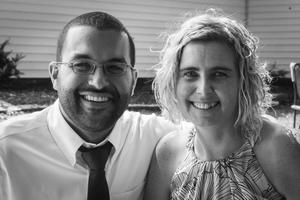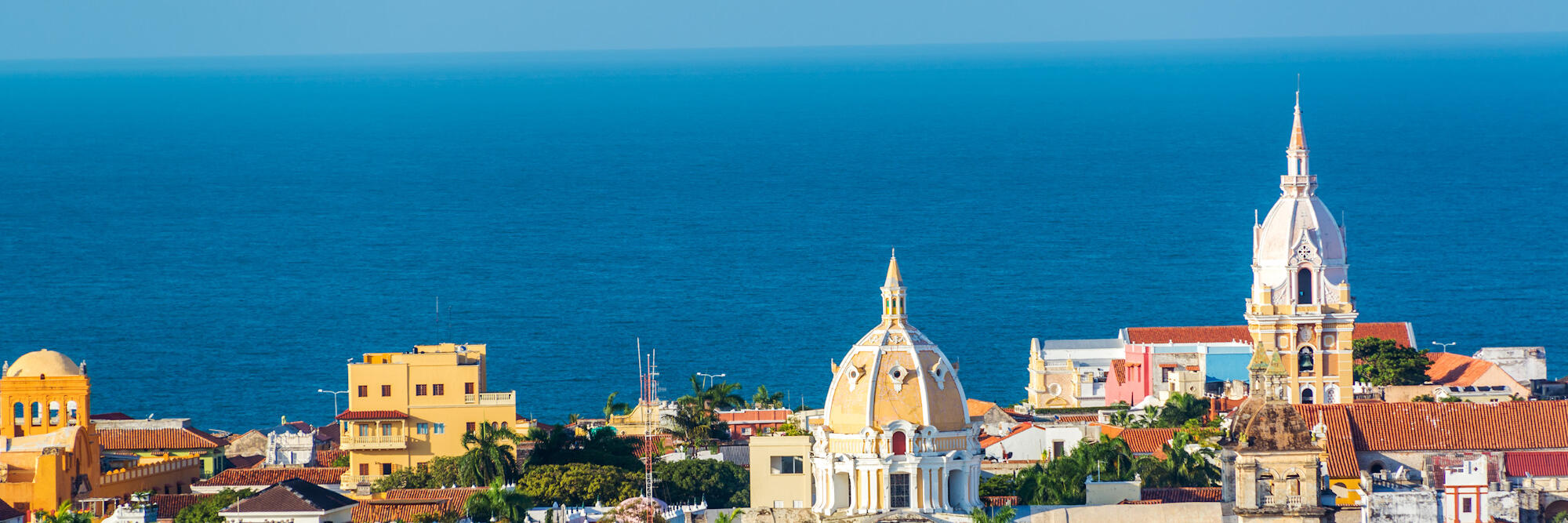Taryn is an Australian who has lived as an expat in Colombia, the USA and Scotland. She is married to an American, whom she met in Bogotá, and they have one son. Taryn is a firm believer that living overseas changes you and helps you understand more about yourself and other cultures. Read more about her experience in Bogotá below, or follow her adventures on her Instagram account.
 About Taryn
About Taryn
Q: Where are you originally from?
A: Australia
Q: When did you move to Bogotá?
A: I moved to Bogotá in 2006.
Q: Did you move here alone or with a spouse/family?
A: I moved as a single person.
Q: Why did you move; what do you do?
A: I initially moved for an open-ended ‘international experience’. I was a high school teacher. Began teaching at an English language institution but quickly got a job at a private British School.
Living in Colombia
Q: What did you enjoy most about Bogotá? How would you rate the quality of life compared to Australia?
A: I enjoyed the quality of life in Colombia. As an expat, you are able to earn a very good wage which enabled my standard of living to be higher than living in my own country.
Q: Any negatives? What did you miss most about home?
A: Bogotá is a very large and congested city, which means that, at times, it can take a long time to get to places. You need to be prepared for this and just settle in for the ride. I did miss the ease of getting around a city.
Q: What are the biggest adjustments you had to make when settling into expat life in Bogotá? Did you experience any particular elements of culture shock?
A: I did not know Spanish when I arrived in the city. This was the biggest adjustment I had to make. I had to adjust my expectations and realize that relationships were going to take a lot longer than I had anticipated.
Q: What’s the cost of living compared to Australia? What is cheap or expensive in particular?
A: I found living in Bogotá so much cheaper than living in my home country. Groceries from a local tienda were so much cheaper, which meant my weekly grocery bill was considerably smaller than that in my home country.
Q: How would you rate public transport? What are the different options? Do you need to own a car?
A: I did not own a car while living in Bogotá. For the first two years of living there, I relied only on the bus. This can be quite the experience, but again, it made life so much less expensive. The buses can be a hit or miss. Some are really old, and the bus drivers are not always so concerned with carefully stopping. It can also take a while to work out what bus you need to take to your destination.
Bogotá has a bus system called the ‘Transmilenio’. This is a faster mode than the local buses but can often be overcrowded. It is also deemed ‘safer’ than the local buses, but you do still need to be aware of your surroundings. I eventually started using taxis and surprisingly found these pretty cheap. Again, you should take all the safety precautions available when using these – especially as a single woman. If your time in Bogotá is temporary, I don’t think you need to own a car.
Q: How would you rate the healthcare in Bogotá? Have you had any particularly good/bad experiences with regard to doctors and hospitals? Are there any hospitals you would recommend?
A: I had a great experience with the healthcare system in Bogotá. After falling awkwardly off a bus, I ended up needing surgery on my ankle. I received top-notch care and my surgeon was amazing. He was American-trained and spoke great English. I actually think I received better care than I would have in my own country.
Q: What are the biggest safety issues facing expats living in Bogotá? Are there any areas expats should avoid?
A: Unfortunately, due to the history of the country, there are still vestiges of petty crime common in the city. As a foreigner, the fact that you simply look different can sometimes draw some unwanted attention. Having said this, I never really felt unsafe walking around, though I made sure I was always paying attention to my surroundings and never wore expensive jewellery.
Areas to the north of the city are generally safer than those in the south, which is generally known as being unsafe for foreigners. Whenever I did have the opportunity to go to the south of the city, it was always with a local. I cannot stress this enough.
Q: How do you rate the standard of housing in Bogotá? What different options are available for expats?
A: The standard of housing was so much better in Bogotá than in my home country – especially as a single person. This also may depend on what job you are here for. Most employers that hire expats will provide housing, and this can be a great perk about living in the country. Generally, expats will live in apartments, and very nice apartments at that.
Meeting people and making friends in Colombia
Q: How tolerant are Colombians of foreigners? Is there any obvious discrimination against particular religions or women etc.?
A: I always found the locals so helpful and friendly. They were always willing to help me out with understanding the city and the culture. I never felt any discrimination.
Q: Was it easy meeting people and making friends? How did you go about meeting new people?
A: I think as an expat the quickest and easiest place to make friends is your place of work. I felt incredibly fortunate with a great working environment with some amazing people from all over the world – who, even today, are still some of my closest friends. As time goes on, meeting local people will naturally happen and will enable you to experience more of the local culture.
Q: Have you made friends with locals, or do you mix mainly with other expats? What advice would you give to new expats looking to make friends?
A: I made some dear local friends, again, who I am still in contact with today. I would advise expats to get out of the expat bubble when they can, take and look for opportunities to spend time with locals and their families.
I always viewed my time in Colombia as a unique experience and wanted to enjoy it as much as I could while I was there. You can often find a social/expat FB group that is specific to your home country. These can be good fun and give you a dose from home when needed.
About working in Bogotá
Q: Did you have a problem getting a visa or work permit? Did you tackle the visa process yourself, or did you enlist the services of an immigration consultant?
A: Though I did a lot of research before I arrived in the country, I moved without a job (which is uncommon for an expat). I initially got work as an English language teacher, for which the institution was willing to get a working visa for me. However, before this came through I got a job at a private British school that took care of the visa for me. Most reputable employers should take care of your visa for you.
Q: What’s the economic climate like in Bogotá? Do you have any tips for expats looking to find a job? Which resources did you find most useful?
A: The economic climate in Bogotá is always improving. In my opinion, jobs (teaching jobs especially) are harder to find than they once were. I think this is because expats generally stay longer than they used to. I would recommend those wanting to work in Colombia research the places of employment they want to work and follow them on Facebook. Keep up to date on new employment opportunity postings.
Q: How does the work culture differ from Australia? Do you have any tips for expats doing business in Colombia?
A: The biggest difference in the work culture is how long things take to get done. Expats need to be patient and understand that things do not run the same way as in their home country. This can be the biggest frustration for expats and can also contribute to how well they enjoy their time in the country.
Family and children
Q: Did your spouse or partner have problems adjusting to their new home? Do you think there are any specific challenges for a trailing spouse?
A: I moved to the country as a single person, however, I did meet my now husband there. I think the fact that we were both living in a foreign country helped us adjust.
Q: What are the schools like? Any particular suggestions?
A: As a teacher at a specific school, I’m a little biased, but I recommend Colegio Gran Bretana as one of the best schools in the city. As a teacher, I saw students arrive from all over the world and quickly assimilate because of the close-knit culture the school was able to achieve.
And finally…
Q: Is there any other advice you would like to offer new expat arrivals?
A: The biggest advice I could offer is to simply adjust your expectations. Things are going to run differently and though you will think you know a ‘better way’, you need to have patience and respect for the country you are temporarily living in.
~ Interviewed May 2018



